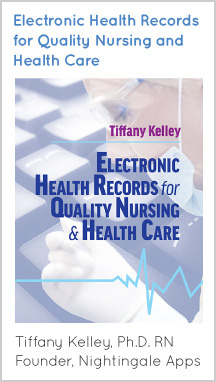“You are taking my vitals on a post-it note!?”
I said these words a few weeks ago during a doctor’s visit. When it was my turn to be seen, I was brought back to a very small room and the nurse said, “I need to take your vitals”. She sat me down and started with my blood pressure. I turned my head to my left to look at what she was doing and that was when I saw it:
the yellow post-it note.
I reacted with: “Oh my, you are taking my vitals on a post-it note!?” The nurse responded, “ Well yes, I have to put them (e.g., my vital signs) in the computer.”
My mind started to race… ‘My vital patient information that can potentially be used over time, to assess my physical health status while under the care of this practice, is being written down on a post-it note.‘

 Know My Voice®
Know My Voice®



